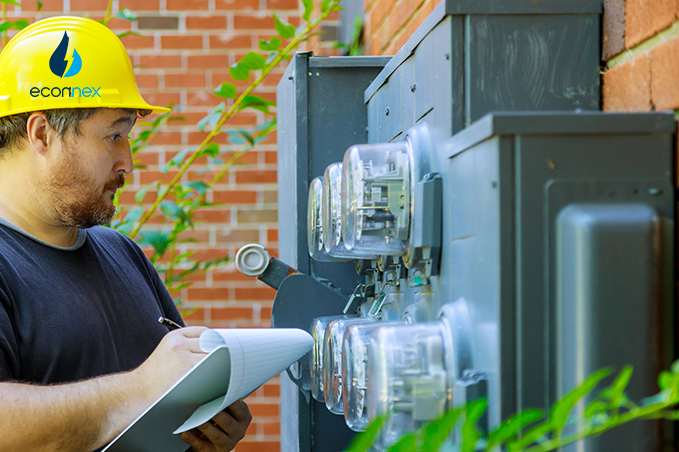The variation and discrepancies between different energy plans and providers in Australia can seem overwhelming. With electricity and gas accounting for a significant chunk of household expenses, finding an energy deal that aligns with your needs and budget is crucial.
So, let’s dive deeper into understanding the Australian energy market, the types of plans and tariffs available, and strategic tips for securing the best energy deal.
Deregulation and Regulation in the Australian Energy Market
The deregulation of the energy market in certain Australian regions, such as New South Wales, Victoria, South Australia, and South-East Queensland, has fostered a competitive environment between retailers.
This competition has led to various choices for consumers, allowing them to shop for energy plans that best suit their needs. On the other hand, regions like Western Australia, Tasmania, the Northern Territory, and parts of Queensland are more highly regulated, offering fewer choices but still providing different plans to cater to consumer needs (and potentially offering government pricing safeguards for consumers).
However, it's important to note that even within regulated markets, different plans can be available to cater to consumer needs, and some form of competition may still exist, albeit in a more controlled environment.
Key Considerations for Choosing an Energy Plan
Selecting the right energy plan is a critical decision that requires careful consideration of various factors to ensure that the chosen plan aligns with your household's energy consumption patterns, lifestyle, and financial preferences. Below, we delve deeper into the key considerations that should guide your decision-making process:
- Type of Electricity Meter - The technology behind your electricity meter plays a pivotal role in determining which tariffs you can access. Traditional flat-rate meters offer simplicity but less flexibility in pricing. In contrast, smart meters or interval meters support time-of-use tariffs, allowing you to save money by using energy during off-peak hours. Understanding the capabilities of your meter is the first step in identifying suitable plans.
- Household Energy Consumption Patterns - Analysing how and when your household consumes energy can help you choose a plan that matches your lifestyle. For instance, if your home is mainly occupied during the evening when rates are typically higher, a plan offering lower peak rates or discounts for evening usage could be beneficial. Conversely, if your home is empty during the day, a plan with favourable off-peak rates for running appliances at night might offer savings.
- Housing Situation - Your current living situation—whether you own your home, rent, or plan to move soon—can influence your choice of energy plans. Renters or those with short-term living arrangements might prioritise plans without long-term contracts or early termination fees, ensuring flexibility to change plans without incurring penalties.
- Solar System Ownership - Households with solar PV systems should consider plans that offer attractive solar feed-in tariffs. You'll be paid this rate for any excess electricity your system exports back to the grid. A higher feed-in tariff can significantly offset your electricity costs. Still, it's essential to balance this against other aspects of the plan, such as the rates for electricity you consume from the grid.
- Support for Green Energy - For environmentally conscious consumers, supporting renewable energy sources is crucial. Many energy providers offer plans that include a percentage of energy sourced from renewable resources. Options like GreenPower enable consumers to ensure that a portion or all the electricity they pay for comes from renewable sources, contributing to reducing carbon emissions.
- Financial Incentives and Rebates - Various energy plans include sign-up bonuses, ongoing discounts for meeting certain conditions (like paying on time), or rebates for specific groups (such as pensioners or low-income households). Evaluating these incentives can lead to significant savings over the life of the plan.
- Customer Service and Provider Reputation - The level of customer service and the overall reputation of the energy provider are crucial. A provider with a track record of responsive customer service, transparent billing practices, and reliable service can significantly improve your overall satisfaction with your energy plan.
By carefully considering these factors, you can choose an energy plan that offers potential financial savings and aligns with your household's energy usage patterns, values, and lifestyle needs. It's about balancing cost, convenience, and your personal or household priorities, ensuring that your energy plan fits your specific situation.
Is it a ‘market retail plan’ or a ‘standard retail plan’?
With a market retail plan, the energy retailer sets the prices, which can change anytime. The prices can increase after you’ve just signed up for the plan. However, the retailer must inform you about the price change no later than your next bill. On the positive side, market retail plans can offer discounts. For example, they might fix the price for a set period. This can be called a price freeze, fixed price or price guarantee.
In contrast, with a standard retail plan, the government sets the prices, and you won’t be able to get any discounts. Rates will generally be higher than market retail plans. Also, if you want to change plans, you’ll only be able to do this once every six months.
You might be on a standing retail plan (or standing offer) if you’ve lived in the same place for several years, you’ve never had a market retail plan, or it has expired.
A good thing about standing retail plans is that the retailer must do more to warn you of any rate changes. Plus, if you don’t pay your bill, there is a minimum amount of time before your energy supply can be cut off.
Tips to Get the Best Energy Deals
- A plan with low usage charges might suit medium to large households - Larger households will usually use more energy. So, they could pocket some significant savings by opting for lower usage charges.
- A plan with low supply charges might suit a household of one or two people - When a household has low energy usage, the supply charges could make up the more significant part of their bill. So, choosing a plan with low supply charges might be a good option.
- A retailer that offers energy rebates and concessions might suit concession card holders - If you hold a concession card or are a low-income earner, look out for retailers that will automatically deduct this benefit from your bill. You may also be eligible for a rebate if you have a medical condition. To learn more about energy rebates, see Save on your energy bills with rebates.
- If you have a smart meter or interval meter, consider a plan with time-of-use pricing - A plan that offers lower energy prices during off-peak times could make you some savings if you use most of your energy during these times. For example, using the washing machine and dryer during the day.
- If you have a solar system that is connected to the grid, consider a plan with competitive solar feed-in tariffs - Solar feed-in tariffs can give your money back for surplus electricity you export to the grid. But make sure you check the other charges as well, as high feed-in tariffs can sometimes be bundled with higher usage charges.
- A whole-bill discount could offer greater savings - Energy deals that offers discounts on the whole bill, not just the usage rates could offer greater savings. But also make sure you work out what the total costs will be based on your energy usage.
- Consider a deal that offers ongoing benefits. If you don’t plan to check and compare plans every 12 months or so, you could be better off going with a plan that offers ongoing benefits.
- Check the retailer’s customer service - Customer reviews can give some insight into how good a retailer is when it comes to customer service. Also, look into how the retailer handles customer requests. For example, do you have the option to complete service requests online as well as over the phone?
Steps to Find Some of the Best Energy Deals
- Know your current plan’s details - You’ll find the name of your current electricity or gas plan on your energy bill. It is usually listed under the ‘Usage and service calculation’ section. It might be called something like ‘Flexi Saver’. The names will vary between retailers. You’ll also find your plan’s tariffs and charges listed here.
- Check your average daily energy usage - Most electricity and gas bills will also display your average daily energy usage. Take note of this, as you’ll be able to use it to calculate your potential savings when comparing energy plans and tariffs.
- Compare some of the best electricity plans from the Econnex panel - The easiest way to find the best energy deals is to compare plans online. With just a few clicks, you can compare the energy plans available in your area. Once you’ve found the best electricity and gas prices, compare them with your current plans to see if you’ll be better off switching. If the prices you see are better than your current plan but don’t want to switch retailers, call your current energy retailer. Tell them you’ve found a better deal and ask if they can match the offer. However, don’t assume it’s a better deal if they offer you a discount. Discounts and offers can have conditions attached. Or they might come with higher usage rates. So, make sure you check all the details before signing up.
Going Beyond Basic Considerations
While choosing an energy plan often focuses on pricing and tariffs, delving into additional factors can enhance your overall satisfaction and potential benefits. Consider the following aspects to ensure your energy plan aligns with broader needs and opportunities:
- Impact of Solar Systems and Smart Meters: Evaluate the potential long-term savings and efficiency improvements offered by solar systems and smart meters.
- Legal Rights and Cooling-Off Periods: Familiarize yourself with your rights, including the cooling-off period, which allows you to cancel a new contract without penalty.
- Customer Service Excellence: Consider the provider's reputation for customer service, which can be crucial during billing disputes or service interruptions.
Questions to ask your Energy Retailer
Gathering all necessary information before signing up for a new energy plan is crucial to making an informed decision. Asking your energy retailer the following questions can help clarify the terms of your agreement, ensure you understand the charges involved, and identify any potential savings or penalties.
- What is the rate per kilowatt hour (kWh) or per megajoule (MJ)?
- What is the usage charge?
- What is the daily supply charge?
- Does the discount apply to the whole bill or the usage only?
- What billing options are available? (e.g. monthly, quarterly)
- What payment options are available?
- Do credit card payments attract a fee?
- Do you offer off-peak rates on hot water?
- How long will the contract be for?
- Are there any termination or exit fees?
- Do you offer any rebates or concessions?
- What are the terms and conditions of the contract?
- What happens at the end of the contract period?
- What if I change my mind – is there a cooling-off period?
Move Towards an Empowered Energy Choice with Econnex
You can significantly reduce your energy bills by taking a proactive approach to understanding your energy usage, comparing plans, and engaging with providers. This guide aims to arm you with the knowledge and strategies needed to navigate the Australian energy market confidently.
Remember, the best energy deal reflects your consumption habits, offers competitive rates, and aligns with your values, such as supporting green energy initiatives. Stay informed, compare regularly, and don't hesitate to switch plans or negotiate to ensure you always get the best possible deal.
When you’re ready to start your journey towards utility savings, compare various plans available for your property and apply online in minutes with Econnex Comparison.



